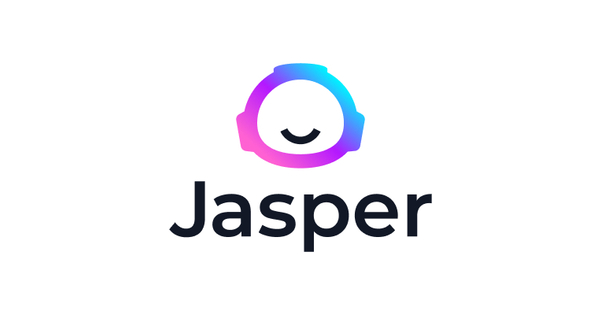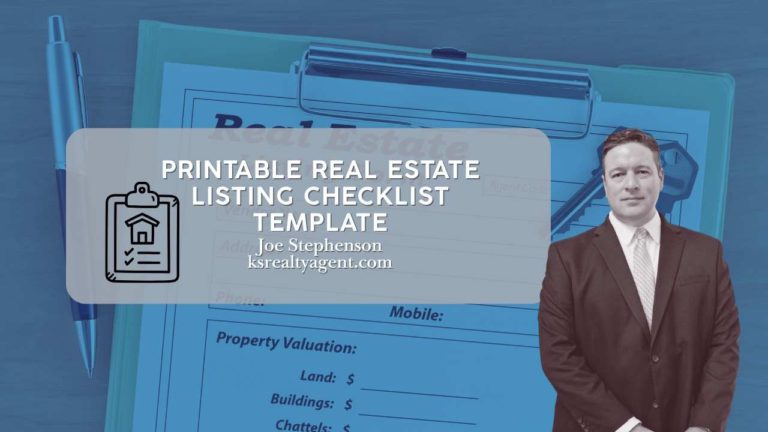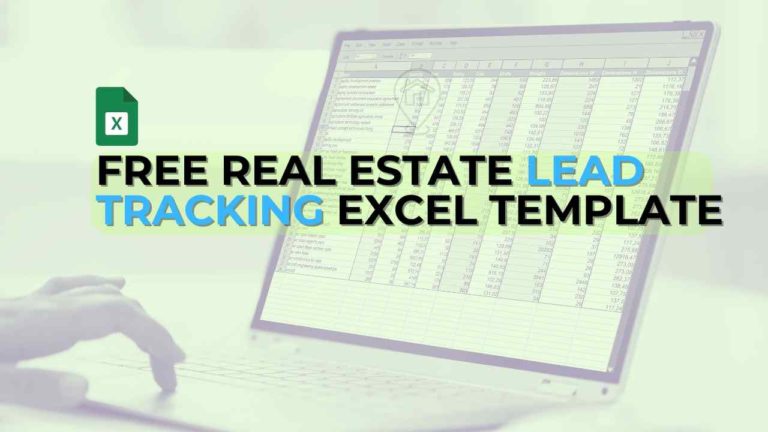
(Updated April 2025)
9 Real Estate Agent Accounting Software Options (All Have Free Demos)
By: Joe Stephenson REALTOR®
Managing your financial processes with the right accounting software is essential to keeping your real estate business healthy and thriving. According to the U.S. Small Business Administration, maintaining accurate financial records is vital for tracking income, preparing tax documentation, and ensuring long-term business success. For real estate agents, having tracking tools is the foundation for smarter decisions and sustainable growth.
During my search for accounting solutions tailored to real estate, I found platforms that go beyond the basics. Many of these include features such as payroll software, detailed accounting reports, and bookkeeping software to help you manage projects, track income, and streamline manual data entry. Platforms like QuickBooks Online and others simplify complex tasks, offering tools like profit and loss statements, unlimited invoices, and tax-time readiness.
Some options offer a free account to test out key features, while others provide paid plans with advanced capabilities like adding multiple users, uploading receipts, or managing rental properties. These online software solutions are designed with real estate professionals in mind, enabling seamless record keeping, direct deposit setups, and fast access to generating reports and pulling data. With the ability to work from various devices using only an internet connection, real estate agents can collaborate effortlessly with their business partners, even across multiple locations.
Options like a breakthrough broker or the availability of starter plans make it more accessible for small business owners to implement these tools. I know the feeling of tracking unlimited numbers of transactions and aiming to get paid faster. These systems make managing your finances more straightforward. Position your business for long-term success by saving time, avoiding costly mistakes, and enhancing client satisfaction.
You can download my recommendations in Excel or PDF.
- A Little About Me
- Real Estate Accounting Software
- How the Software Makes Life Easier
- The Benefits to Real Estate Brokers
- Key Features
- How to Choose the Right Software
- Contact Me
1). MRI Software
MRI Software provides comprehensive real estate accounting solutions designed to manage invoices, cheques, and vendors across property portfolios through an intuitive web-based platform.
For more information, you can contact them. Watch the MRI Software Client Success Story to see how it benefits users.
2). Bench
Bench is identified as the best overall accounting software for real estate agents, known for its user-friendly interface and comprehensive financial services.
You can book a free demo to explore its features. Learn more by watching What is Bench?.
3). Zoho Books
Recommended for its useful integrations, Zoho Books offers a robust accounting platform tailored for real estate professionals seeking seamless synchronization with other business tools.
Try it with a free 15-day demo. The ZOHO Books Full Product Tutorial provides a comprehensive guide.
4). QuickBooks Desktop Enterprise
QuickBooks Desktop Enterprise is a well-established accounting solution offering a wide range of features for real estate businesses.
Explore its capabilities with a free trial. Watch the QuickBooks Video for more insights.
5). Dynamics 365
Microsoft’s Dynamics 365 is a comprehensive ERP tool that includes modules for financial management suitable for real estate firms.
Experience it with a free trial.
6). Xero
Xero is known for its cloud-based accounting solutions, offering real estate businesses the ability to manage their finances efficiently.
A free 30-day trial is available to assess its suitability.
7). Buildium
Specifically designed for property management, Buildium provides tools for managing finances, tenants, and properties all in one platform.
Try it with a 14-day free trial.
8). DoorLoop
DoorLoop offers a comprehensive property management software solution with strong accounting features.
New users can request a demo to explore its functionalities.
9). AccountEdge
AccountEdge provides a powerful, flexible accounting software solution for real estate businesses looking to manage their finances with greater precision.
You can request a trial version to evaluate its offerings.

A Little About Me
As a seasoned real estate investor and agent with over 20 years of experience, I’ve evaluated countless real estate agent accounting software options. My expertise allows me to pinpoint what features make real estate accounting software exceptional.
I’ve done the legwork to identify the best real estate accounting software solutions, featuring essential accounting tools like automated payments and bank account integration. If you’re a property management professional or involved in commercial real estate, then these accounting tools are tailored to meet your needs.
For those seeking a comprehensive approach, these real estate specific tools offer advantages not found in general accounting software. I recommend exploring a free plan demo real estate accounting software to find the perfect match. These accounting software products are ideal not just for property managers, but also for real estate brokers, agents, and commercial real estate landlords.
I hope my curated recommendations get you to the best real estate accounting software available.

Accounting Software Makes Life Easier for Running a Real Estate Business
Individuals searching for real estate accounting software are typically looking for a comprehensive, industry-specific solution that can help them manage financial aspects of their real estate business more efficiently, accurately, and effectively, all while being easy to use and cost-effective.
- Streamlining Operations – The intent could be to find software that streamlines financial operations, automates routine tasks, and integrates various aspects of real estate accounting, such as expense tracking, rent collection, lease management, and financial reporting, into a single platform.
- Improving Accuracy and Compliance – Users might be looking for a solution that enhances the accuracy of their financial records and ensures compliance with real estate regulations and tax laws. This involves features like automated bookkeeping, tax preparation assistance, and regulatory updates.
- Enhancing Financial Analysis and Reporting – Real estate professionals often require advanced reporting and analysis tools to make informed decisions. Therefore, they might be seeking software that offers comprehensive financial reporting, performance analytics, and investment analysis capabilities tailored to real estate.
- Scalability and Customization – The search could also indicate a need for scalable software that grows with the user’s business and allows for customization to accommodate specific requirements, portfolio sizes, and property types.
- Ease of Use and Support – Potential users may prioritize finding software that is user-friendly, offers strong customer support, and provides training resources to ensure a smooth implementation and ongoing use.
- Cost-Effectiveness – Finally, the user intent might include finding a cost-effective solution that offers good value for money, considering the features, scalability, and support provided by the software.
- Finding a Specialized Solution – Users are seeking accounting software that is specifically designed to meet the unique needs and challenges of the real estate industry. This includes handling transactions related to property management, sales, rentals, and investments efficiently.

The Benefits to Real Estate Brokers
Finding the right accounting software has completely changed the game for me and also the real estate brokers I know.
It’s brought a host of benefits that not only save me precious time but also help keep more money in my pocket, all while tackling some of the most common challenges we face in this industry.
These are some of the most popular, time saving, money saving, problem-solving solutions that real estate brokers use the software for.
- Streamlines Money Management – Simplifies tracking of income and expenses, making it easier to monitor financial health and make informed decisions.
- Enhances Inventory Management – Keeps a detailed record of properties, helping brokers efficiently manage their portfolio and match listings with potential buyers or tenants.
- Automates Payroll Services – Reduces the manual work involved in processing payroll, ensuring employees and contractors are paid accurately and on time.
- Offers Automation Tools – Automates routine tasks such as generating bank statements, sending invoices, and updating balance sheets, which significantly save time.
- Ensures Compliance – Keeps up-to-date with the latest tax laws and regulations, reducing the risk of non-compliance penalties for small businesses.
- Facilitates Instant Payments: Streamlines the process to pay bills or receive rent payments instantly, improving cash flow management.
- Provides Access to Tax Experts – Some software solutions offer access to tax professionals who can provide advice and ensure accuracy in filing, potentially saving money on taxes.
- Improves Balance Sheet Accuracy – Offers tools for maintaining accurate and up-to-date financial statements, giving a clear view of the business’s financial position.
- Saves Time on Financial Tasks – Reduces the hours spent on manual bookkeeping and financial reporting, allowing brokers to focus more on client service and property sales.
- Tailors Services Provided: Many software solutions include unique features designed specifically for the real estate industry, enhancing the efficiency of services provided to clients.
- Unveils Unique Features – Software for real estate often comes with industry-specific tools, such as tenant screening, lease management, and maintenance request tracking, which cater to the unique needs of real estate professionals.
Selecting the right software for real estate is crucial for brokers looking to enhance their operations. It not only aids in efficient money and inventory management but also ensures compliance, provides valuable automation tools, and saves considerable time and resources. These advantages are very helpful for saving time, and it enables small business owners and real estate professionals can focus on growing their businesses and providing superior services to their clients.

Key Features to Look For in Real Estate Accounting Software
Let me walk you through what I found were the most important features.
It’s not just about crunching numbers; it’s about finding a buddy that’s got your back when it comes to managing all those dollars and cents.
That’s me. I’m your real estate buddy. fist bump
Core Accounting Features
First off, let’s talk about the backbone of any high-quality real estate accounting software: the core accounting features.
This encompasses everything from a robust general ledger, accounts payable/receivable, to efficient bank reconciliation processes. And let’s not forget about automated billing and invoicing — absolute necessities in our fast-paced world.
I’ve found these features to be critical for maintaining precise financial oversight. They empower us to track expenses meticulously, streamline payroll, and ensure that our cash management is second to none.
Moreover, the introduction of automation in these areas has been a game-changer, significantly reducing manual effort and minimizing errors, thereby elevating our operational efficiency.
Real Estate Specific Features
Diving deeper into the realm of real estate, our industry demands specific functionalities that go beyond general accounting needs.
This includes comprehensive lease tracking and management, property portfolio oversight, tenant and owner portals, and detailed maintenance and repair cost tracking. Additionally, you can simplify your property management tasks with the use of tools like a rent ledger template. Through my reviews, I’ve identified these features as essential for facilitating seamless real estate transactions and enabling both large property management companies and individual owners to excel.
For someone managing multiple properties, the value of these tools cannot be overstated.
Financial Reporting and Analysis
Another critical area is financial reporting and analysis.
The ability to customize financial reports, conduct cash flow analysis and forecasting, and access performance metrics for properties and investments provides indispensable insights.
These analytical tools have consistently proven their worth by aiding in informed decision-making, streamlining tax planning, and offering a comprehensive view of business finances. In my experience, the best software solutions excel in this domain, equipping us with the clarity needed for strategic planning.
Compliance and Security
The importance of compliance and security features cannot be overstressed. It could be tax preparation and filing assistance to rigorous data security measures and adherence to real estate laws and regulations. These aspects ensure that our operations are not only efficient but also secure and compliant.
In my two decades of navigating the real estate landscape and reviewing various software solutions, I’ve come to realize that choosing the right cloud-based accounting software involves identifying a platform that not only meets basic financial management needs but also addresses the unique intricacies of real estate operations.
Drawing from my extensive experience, I’ve curated a list above of software solutions that stand out in terms of functionality, user experience, and overall value to real estate professionals.
My goal is to guide you toward making an informed decision that aligns with your business objectives, ensuring that you benefit from a solution that offers comprehensive support and effectively manages your real estate accounting needs.

How to Understand Your Needs for Real Estate Accounting Software in 2 Easy Steps
I believe it’s important know your needs first, especially when you’re trying to find the best software that aligns with your specific use cases. Maybe you’re a self-employed real estate agent or part of a larger property management team, you know as well as I that the unique requirements are needed for optimizing your financial management processes.
This is how I identified the crucial business and technical needs to select the best accounting software for your real estate operations.
Step 1). Identifying Business Requirements
Size and Scope of Your Real Estate Operations
The first step in selecting real estate accounting software was I assessed the size and scope of my operations. Was I managing residential properties, commercial estates, investment portfolios, or a mix of these? The complexity and scale of the operations will directly influence the choice of software.
For instance, managing rental income, pay bills, and tracking rent payments for multiple properties necessitates a comprehensive solution that can handle diverse transactions and generate reports reflecting your cash positions accurately.
Specific Financial Management Needs
It may be hard to believe, but it’s true that real estate agents and property managers have unique financial management needs. In some cases it may be budgeting heavy, while others might need more forecasting features to help brokers and gents make predictions on investments.
Other may need lease management and maintenance requests features since their target audience skews more that direction. In any case the accounting software should cater to these specific requirements. My favorite features are tracking expenses incurred, managing bank accounts, ensuring compliance with sales tax regulations, and maximizing tax deductions.
I also like to keep track of accounting softwares that have functionalities for payment processing, managing accounts receivable, and keeping detailed tax records are vital for streamlined operations.
Step 2) Assessing Technical Requirements
Integration Capabilities with Existing Systems
It’s essential that any real estate accounting software to seamlessly integrate with existing systems like CRM or other property management software. This integration has been a game-changer for me, ensuring seamless data flow, saving me invaluable time, and providing me with real-time visibility into my financial status.
I always look for software that supports online portals for tenant screening, maintenance requests, and rent payments, as well as capabilities to send invoices and manage expenses efficiently.
It’s these features that have streamlined my operations and allowed me to focus more on growing my business.
Cloud-based vs. On-premise Solutions
Choosing between cloud-based accounting software and on-premise solutions has been one of the more critical decisions I’ve faced. The most convenient part of cloud-based platforms, for me, is their accessibility from any location, which allows more users to work simultaneously.
This feature has been crucial for my team, ensuring that our data is securely backed up online and we’re always in sync. The support for multiple currencies and integration with third-party applications has been particularly beneficial for my operations, especially given the international nature of real estate today.
On the flip side, while on-premise solutions might offer similar features, I’ve found they require a higher initial investment and ongoing maintenance costs—something to consider depending on the scale and scope of your operations.
My Process Serves Me Well
Choosing the right real estate accounting software has involved me carefully considering several factors related to the specific demands of my business and the technical infrastructure I have in place.
By evaluating the size and scope of my operations, my particular financial management needs, and the technical requirements of my business, I’ve been able to select a software solution that not only meets my current needs but is poised to grow with my business.
The best software is one that offers comprehensive support, ensures compliance, and ultimately helps me manage my real estate accounting needs effectively.

Check Back for Updates to this Bookkeeping Software for Real Estate Agent Businesses
My work is ongoing. As a real estate agent’s job is never complete, I like to stay on top of things. I’m always refining my recommendations and testing new free trials for bookkeeping software that meets the needs of our demanding industry. I’ve come across tools tailored for basic bookkeeping, user-friendly accounting apps for managing projects, and advanced options to pull reports or move into an advanced plan.
Some platforms accommodate additional users, streamline payroll software, and generate accounting reports like profit and loss statements with ease. Manual data entry becomes a hassle of the past thanks to online software that integrates seamlessly with your business partner’s workflow. QuickBooks Online and other solutions with a free account offer features like generating reports, managing unlimited invoices, and organizing rental properties.
With features to prepare for tax time, improve record keeping, upload receipts, and even handle direct deposits, these platforms make running my business smoother. Paid plans often include smarter decision-making tools to enhance efficiency, while starter plans and options that help me get paid faster handle an unlimited number of transactions without missing a beat. Keep checking back as I continue to find and share the best solutions to keep your real estate business thriving.
Feedback, Contact, and Newsletter
Stay informed about the latest trends and tips in real estate by joining our newsletter.
As someone deeply embedded in the world of real estate accounting, I’ve encountered firsthand the unique challenges and opportunities that many real estate professionals, small businesses, and those managing bank accounts and payment processing face daily.
From ensuring compliance to streamlining accounts receivable so clients can pay instantly, the quest to manage all aspects efficiently is ongoing.
If you have any feedback, ideas, or insights that could help us navigate these waters more smoothly, I’d love to hear from you.
Joining my newsletter is a great way to stay connected and share your thoughts.
Together, we can explore innovative solutions and strategies to tackle the complexities of real estate accounting and make our operations as efficient as possible.
Why not take a moment to sign up and join our community? Your input could make all the difference.






